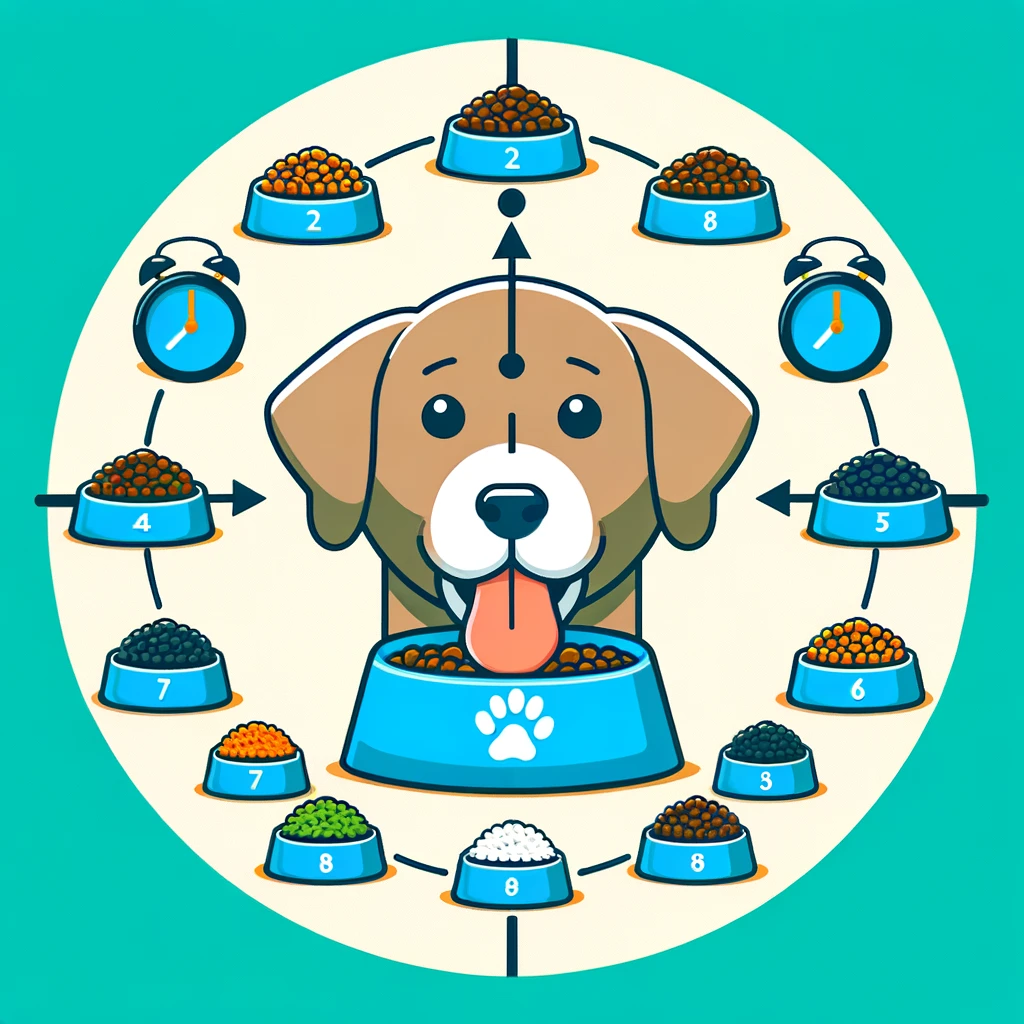
Feeding Your Dog: How Often Should They Eat Per Day?
Feeding your dog is an important aspect of their overall health and well-being. Just like humans, dogs require a balanced diet to thrive and maintain optimal health. One common question that many dog owners have is how often they should feed their furry friends. While there is no one-size-fits-all answer to this question, there are some general guidelines that can help you determine the best feeding schedule for your dog.
Dog’s Age and Size
When it comes to determining how often your dog should eat, their age and size are important factors to consider. Puppies, for example, have different nutritional needs compared to adult dogs. As a general rule, puppies should be fed more frequently than adult dogs. Typically, puppies should be fed three to four times a day until they are about six months old. After six months, you can gradually reduce the number of feedings to two times a day.
Adult dogs, on the other hand, can usually be fed once or twice a day. However, it is important to note that smaller breeds may benefit from more frequent meals, while larger breeds may do well with one larger meal per day. It’s always a good idea to consult with your veterinarian to determine the best feeding schedule for your specific dog.
Activity Level and Health
The activity level and health of your dog also play a role in determining their feeding schedule. Dogs that are more active and energetic may require more frequent meals to sustain their energy levels. On the other hand, dogs that are less active or have certain health conditions may benefit from fewer feedings or a specific feeding schedule recommended by their veterinarian.
If your dog is overweight or underweight, it’s important to consult with your veterinarian to develop a feeding plan that promotes a healthy weight. They may recommend adjusting the portion sizes or the number of meals your dog receives each day to help them reach and maintain a healthy weight.
Feeding Tips
Here are some additional tips to consider when it comes to feeding your dog:
- Stick to a consistent feeding schedule: Dogs thrive on routine, so try to feed them at the same time each day. This helps regulate their metabolism and digestion.
- Measure portion sizes: It’s important to feed your dog the appropriate amount of food based on their size, age, and activity level. Use a measuring cup to ensure you are providing them with the right portion sizes.
- Avoid free-feeding: Leaving food out all day for your dog to graze on can lead to overeating and weight gain. It’s best to establish set meal times.
- Monitor your dog’s weight and adjust as needed: Regularly check your dog’s weight and body condition. If they are gaining or losing weight, consult with your veterinarian to make the necessary adjustments to their feeding plan.
- Choose high-quality dog food: Look for dog food that is made from high-quality ingredients and meets the nutritional requirements for your dog’s life stage. Your veterinarian can provide recommendations if you’re unsure.
Remember, every dog is unique, and their feeding requirements may vary. It’s important to pay attention to your dog’s individual needs and consult with your veterinarian to develop a feeding plan that promotes their overall health and well-being.